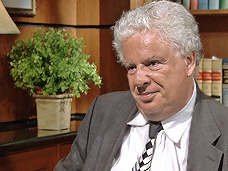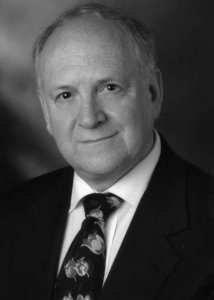
Martin Sieff
Martin Sieff is a senior fellow at the American University in Moscow and Chief Global Analyst at The Globalist. He is the author of The Politically Incorrect Guide to the Middle East.
What did Vladimir Putin, the president of Russia say in his September 12 op-ed article in the New York Times that outraged America’s pundit elite so much? And why does the isolationist American Right now praise him so much? The answers reveal the alarming moralistic recklessness that has cursed U.S. foreign policy in the more than two decades since the Collapse of Communism and the end of the Cold War.
Putin did not say anything new or surprising in his insistence that interventions by superpowers in other countries should only take place with the express sanction of the United Nations Security Council. This has been a repeated theme of his public statements since he first became president of Russia. When he wrote, "The United Nations’ founders understood that decisions affecting war and peace should happen only by consensus,” this was pure vintage Putin.
But it was much more than that: It was also pure vintage Russian foreign policy.
I first encountered this tradition in the post-Cold War world while attending the 1998 Wehrkunde, or War Studies Conference in Munich as a member of the U.S. delegation. These days it has expanded and transformed itself into the Munich Security Conference and has become a global media platform for the leaders of Russia, China, India and other nations to wage their public diplomacy before a world-spanning audience. But 15 years ago, it was still a low-profile, steam-lined businesslike gathering held to maintains strong ties of defense and mutual understanding between the European nations and the United States – and to hold private, serious, dialogues with Moscow as well.
At that time, Russian diplomats and policymakers were growing alarmed by the coming U.S. Air Force intervention to bomb Serbia and compel it to evacuate its armed forces from the traditionally Serbia but by then ethnic majority Albanian province of Kosovo. Since the disintegration of Yugoslavia, Russia and Serbia had revived their ancient friendship. In 1914, Imperial Russia had charged catastrophically into World War I against Austria-Hungary and Imperial Germany in defense of Serbia. But in 1998, Russian attitudes towards the latest Serbian crisis were cautious and concerned. At the Wehrkunde, senior Russian officials were very clear about their concerns.
The Russian argument was that if the Clinton administration pushed ahead with military intervention anyway to drive the Serbs out of Kosovo, it would shatter the crucial principle of international law that had maintained world peace between the superpowers and all other major nations for 53 years since the end of World War II.
U.S. policymakers and pundits alike shrugged off these Russian arguments. The Kosovo intervention went ahead and was widely popular in the United States. From an American perspective, it continued the long run of such, swift, supposedly "surgical” U.S. military operations against tiny and easily conquered enemies that had started with the invasion of Grenada in the Caribbean in 1983. Other examples included Panama in 1989, Iraq in 1991 and 2003 and Afghanistan in 2001. However, the last two examples showed it was far easier to conquer a country than to occupy and pacify it.
The fundamental Russian concern over Kosovo in 1998 was exactly the same as Putin’s argument against unilateral U.S. intervention in Syria today. Since the end of World War II, the fundamental reason world peace has been maintained has been the veto power of the five main global nations – the United States, the Soviet Union/Russia, China, Britain and France – in the UN Security Council. This is the fundamental brake, or safeguard, against the irresponsible and reckless use of unilateral armed force by any single great power.
However, now as Putin pointed out in his New York Times op-ed article, this crucial Security Council veto has been gravely weakened because "influential countries bypass the United Nations and take military action without Security Council authorization.”
Russia has, of course, a strong self interest in preserving the UNSC but that does not make Putin’s defense of it stupid or wrong.
Putin was also correct to point out that "humanitarian” interventions in small, remote countries usually have appalling unforeseen complications and consequences. The deaths of 243 U.S. servicemen, including 220 Marines in the Beirut barracks bombing in 1983 and the problems the United States has encountered in Iraq, Afghanistan and Somalia all proved that.
U.S. intervention in Syria is certainly not in Russia’s national interest, which is why Putin opposes it. But it is not at all in America’s national interests either, which is why U.S. policymakers should heed his warnings.



_jpg/250px-ElbeDay1945_(NARA_ww2-121).jpg)







